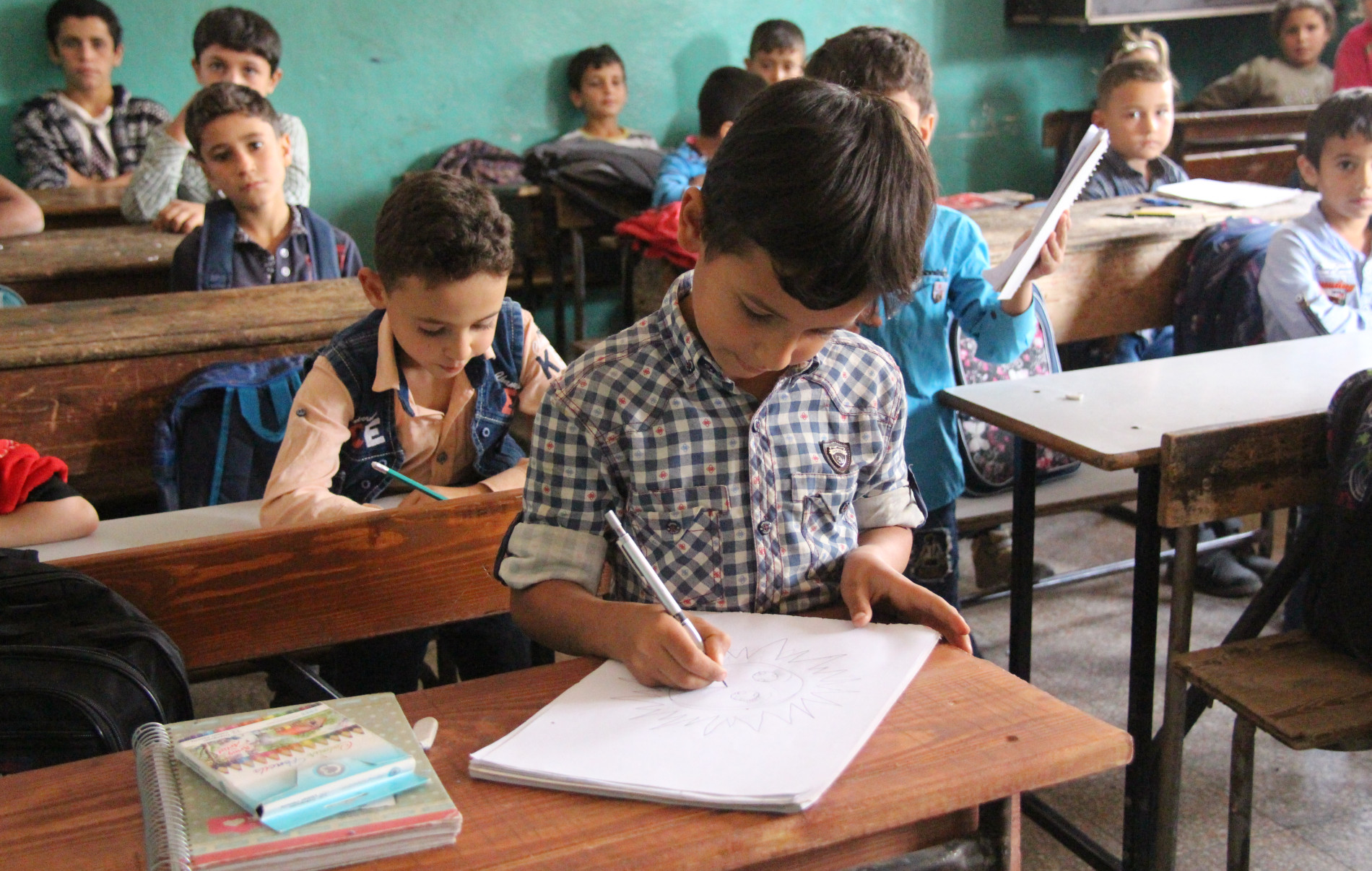
Syria
At People in Need, we were one of the first international responders to the humanitarian crisis in Syria. Since 2012, we have supported millions of people across the country through a wide range of projects, including access to education, food security, livelihoods, and Water, Sanitation and Hygiene (WASH) services.
While the war has ended, the humanitarian crisis persists. Consequently, we continue to support the Syrian population through humanitarian assistance. At the same time, we work to contribute to economic recovery and long-term development. Our work includes: support to agriculture, livelihood opportunities, civil society organisations, and people returning to their homes. We work alongside determined Syrian communities as they take careful and considered steps toward recovery.
Our response balances support for internally displaced people with interventions in return areas. This includes education programmes that help returnee children reintegrate into the formal school system; assistance in camps and return locations through cash-based support; WASH services; and winterisation assistance. Livelihoods support continues through small business grants and self-help groups, all underpinned by strong community engagement. This work is strengthened through the expansion of our Civil Society and Inclusive Governance pillar, implemented in close collaboration with local Community-Based Organisations to foster social cohesion and peace.
We plan to further develop programmes aligned with the Humanitarian–Development–Peace Nexus. Our strategy is structured around four core pillars:
- Humanitarian Aid and Early Recovery
- Human Capital and Education Systems
- Climate Resilience and Sustainable Livelihoods
- Civil Society and Inclusive Governance
Anchored in this strategy, we are piloting a range of innovative approaches. These include applying a Market Systems Development (MSD) approach to solar value chain development, implementing community-based microfinance loan schemes, and supporting governance initiatives in return areas that promote social cohesion and peacebuilding.
The situation in Syria
After nearly 14 years of war, Syria saw a semblance of peace at the end of 2024. Nevertheless, humanitarian needs remain severe, with an estimated 16.5 million people in need of assistance.
Since December 2024, more than 1.2 million refugees have returned from neighbouring countries, alongside over 1.9 million internally displaced people. Many return to homes that are damaged or destroyed and to communities with limited services and livelihood opportunities.
Within Syria, an estimated 5.5 million people remain internally displaced, of which 1.2 million live in camps—three-quarters are women and children. As a result, many communities will continue to rely on humanitarian assistance in the near term to meet their needs.
Nationwide, education remains critical. Approximately 2.5 million children are currently out of school, while a further 1.6 million are at risk of dropping out. At the same time, around 40 per cent of schools remain non-operational.
Ongoing hostilities in the northern and southern parts of the country continue to generate additional humanitarian needs, including new displacement, protection concerns, and challenges to humanitarian access.





